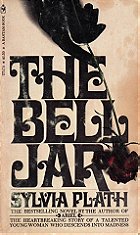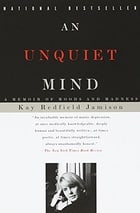I was disappointed in the book, not that it wasnât brilliant - because it was. Itâs just - this was the vaguely fictionalised novelisation of Plathâs life. I thought itâd be different - more emotional, more detailed. Written by a writer of her calibre, it seemed very bland.
The book starts out while sheâs on a working holiday in New York. This is perhaps my favourite part of the book. After itâs over, she goes home, has a ânervous breakdownâ and then is shipped off to a mental hospital. While I know that itâs her life and of course not boring, there are other authors who have written the transition better - Susanna Kaysenâs Girl, Interrupted and Elizabeth Wurtzelâs Prozac Nation spring instantly to mind.
Perhaps the most interesting part of the book is the drama that unfolded regarding its publication.
The Bell Jar was first published in January 1963, a short time before her death. Unfortunately, the factors that drove her to suicide were already there - her marriage to Ted Hughes was failing, she was poor, and - during the worst British winter in ages - she and her two children had moved into a bare flat. She would commit suicide a few weeks later, on February 11th.
Because of the autobiographical factors in The Bell Jar, the printing before her death was limited to only overseas distribution and it was even under an assumed name. Hughes, who had inherited the copyrights after her death, had promised Sylviaâs mother that the book wouldnât be printed in America until after the matron died. However, due to some copyright issues, publication was forced in 1971. Some wonder if the book would ever have reached American readers if not for her untimely and premature death.
All reviews -
Books (22)
Not her best work.
 Posted : 18 years, 7 months ago on 20 October 2006 05:31
(A review of The Bell Jar)
Posted : 18 years, 7 months ago on 20 October 2006 05:31
(A review of The Bell Jar) 0 comments, Reply to this entry
0 comments, Reply to this entry
A memoir not to be missed.
 Posted : 18 years, 7 months ago on 20 October 2006 05:24
(A review of An Unquiet Mind: A Memoir of Moods and Madness)
Posted : 18 years, 7 months ago on 20 October 2006 05:24
(A review of An Unquiet Mind: A Memoir of Moods and Madness)This is the memoir of a woman who suffers from manic-depressive illness, who also happens to have a Ph.D. in psychology. While I do have a literary obsession with memoirs written by so-called 'crazy girls' [i.e. Wurtzel, Kaysen], I consider this to probably be the best of its genre. For Kay is not just a patient with bipolar disorder, but she is also at the forefront of research into it. She discusses her life story as both the healed and the healer. The emotional and clinical aspects both together in one book were just brilliant.
 0 comments, Reply to this entry
0 comments, Reply to this entry
 Login
Login
 Home
Home 4 Lists
4 Lists 22 Reviews
22 Reviews Collections
Collections